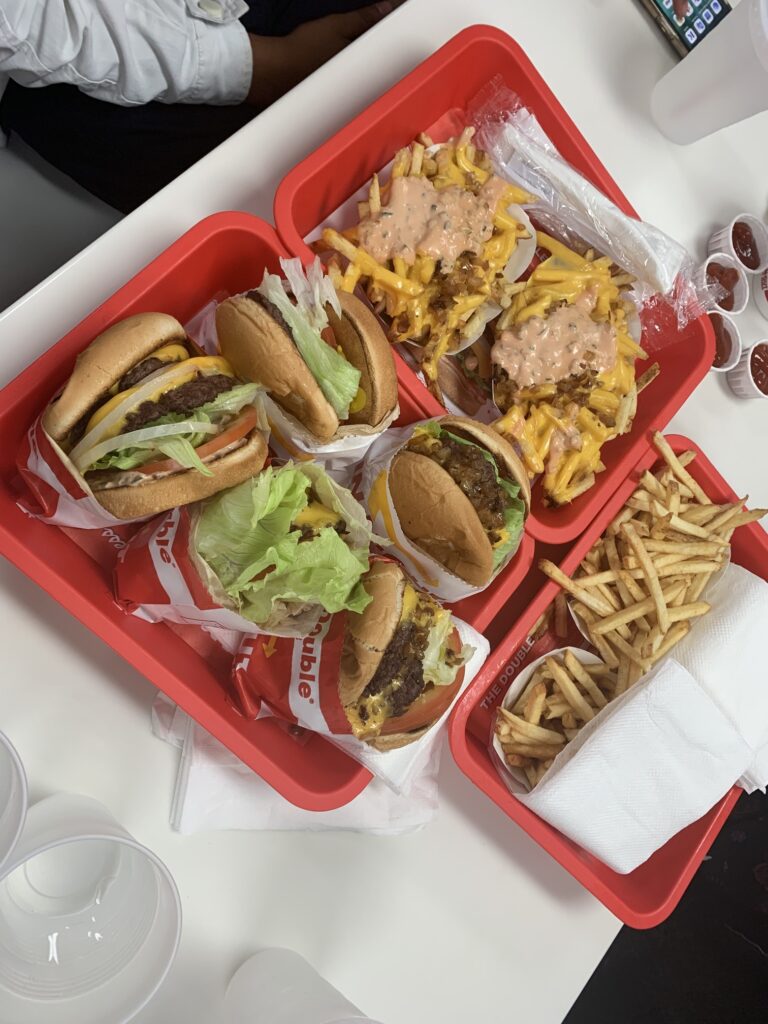Travel Guide to Çanakkale, Türkiye
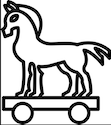
Ra's Travel Guide to Çanakkale
The location of the Ancient City of Troy and the movie Trojan Horse; a complete travel guide to Çanakkale.
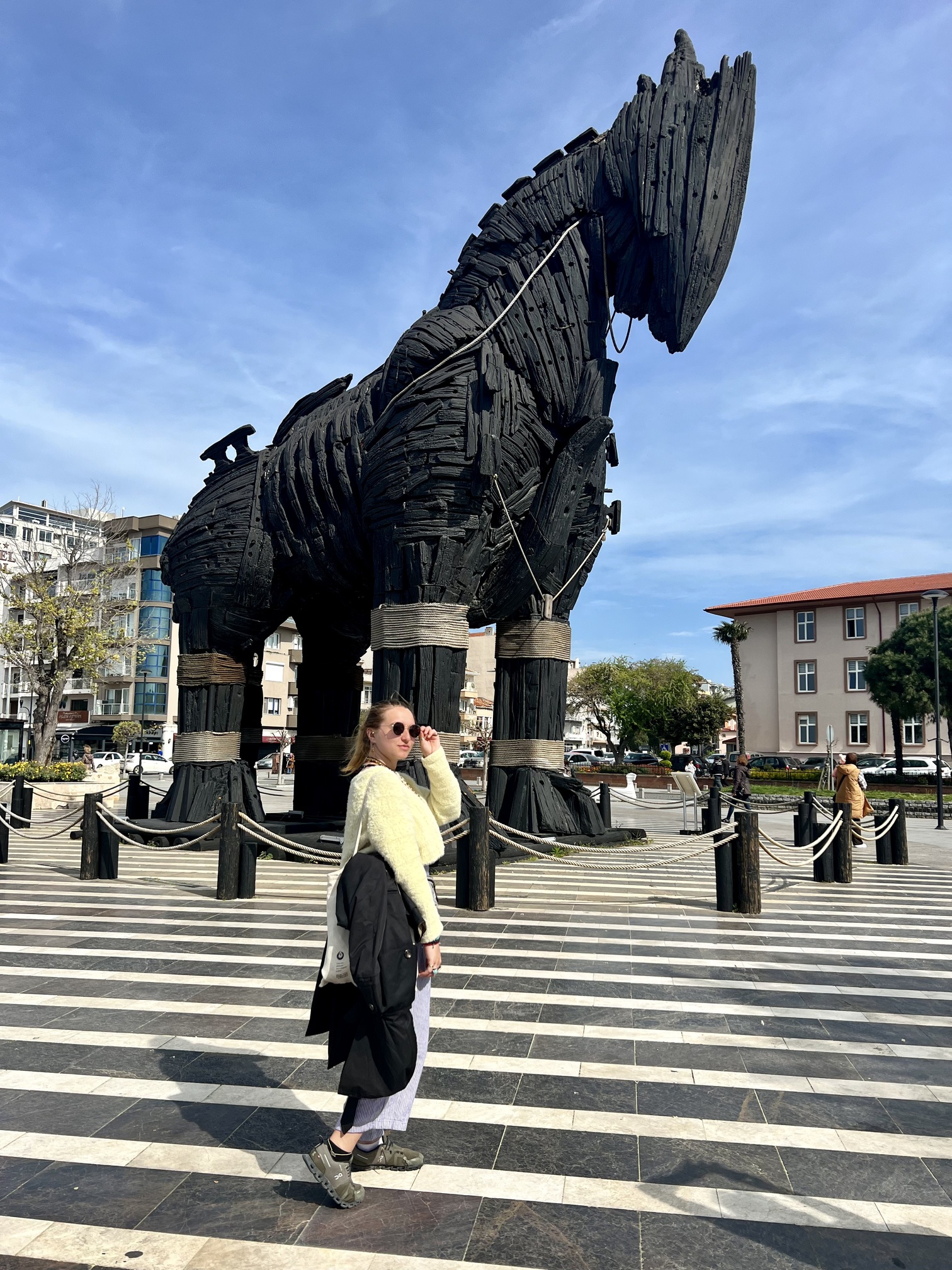
The name of the city derives from the word "pot," attributed to the long history of pottery and products crafted by local artisans. Çanakkale is situated on the Dardanelles Strait on the Biga Peninsula, also known as Troad or Troas. First inhabited 6,000 years ago in the Bronze Age, today it is a modern city that attracts visitors eager to learn about the First World War in Gallipoli and explore the renowned ancient city of Troy. Read below in this comprehensive travel guide to Çanakkale to learn how to maximize your visit.
Getting to Çanakkale, Türkiye: Transportation Options and Travel Tips
Where to Stay in Çanakkale, Türkiye?
If you're interested in exploring Gallipoli or Troy, I highly recommend choosing accommodation in the city center of Çanakkale for convenience. The city offers a variety of lodging options, including hotels, Airbnbs, guest houses/bed and breakfasts, and a few hostels, catering to various budgets. Keep in mind that accommodations closer to the city center and the waterfront tend to be pricier. Additionally, there are a few resorts situated along the waterfront, offering the luxury of private beach access.
During my visit to Çanakkale, my stay was arranged by the tour company I was traveling with. I opted for a 3-star hotel located in the bustling city center. This choice proved to be advantageous as it facilitated easy access to and from the main tourist attractions and allowed me to navigate the city effortlessly. If you prefer a strategic and accessible location, especially when planning to explore Gallipoli or Troy, choosing accommodation in Çanakkale's city center is a practical decision.
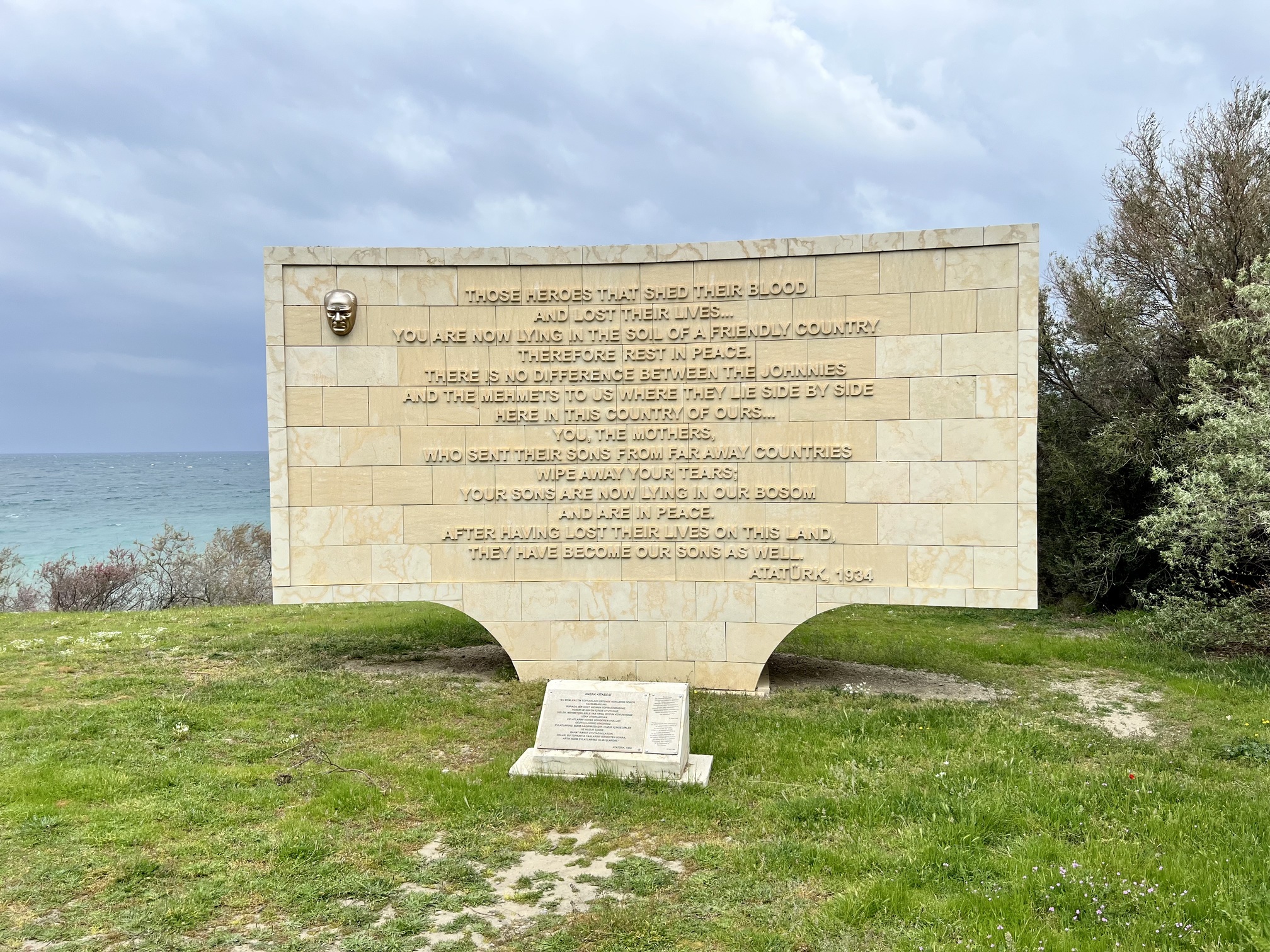
Guides to Türkiye
Getting Around Çanakkale, Türkiye
Car
Renting a car in Çanakkale is possible from local agencies or those at the airport. Having a car is a convenient option if you’re traveling solo or without a tour group and wish to visit Troy and Gallipoli, which are located just outside of Çanakkale. Otherwise, you will need to rely on one of the other options below. If you’re solely focusing on staying within the city center, a car is not necessary.
Bus
Minibusses are available to take you around Çanakkale and between the towns in the surrounding area. However, these are not very tourist-friendly and don’t travel to the main tourist spots. They are primarily used by locals for travel between towns. Additionally, the buses operate on a cash-only basis, and not many of the drivers speak English.
Taxi
Local taxi companies are available to help you get around Çanakkale, to Troy, or to Gallipoli. To ensure a fair price, have a local guide or the hotel hire the cab for you rather than hailing a cab from the street. Be sure that the meter is turned on, confirm the price of the ride before agreeing, and get the taxi company or driver’s number if you’re traveling to Troy or Gallipoli because you will need to call the cab to come pick you up when you’re done.
Guided Tours
The easiest way to see Çanakkale is through a guided tour. This way, you will have an included tour guide to tell you the history of the city, Gallipoli, and Troy, and transportation is included. Many companies offer excursions to these main sites from Çanakkale, or as part of a larger tour of Türkiye. Be sure to reserve your spot in advance, especially during peak tourist season.
Walking
If you’re only visiting the center of Çanakkale, walking around as the main form of transportation is possible and is a great way to immerse yourself in the city. However, if you’re looking to visit Gallipoli or Troy, you will need to use one of the transportation methods above, as they are located just outside of the city.
What to Do in Çanakkale, Türkiye?
Ancient City of Troy
One of Çanakkale's foremost attractions, the Ancient City of Troy, is believed to be the setting for Homer's Iliad and the legendary Trojan Wars. Situated 31 kilometers from Çanakkale, this UNESCO World Heritage Site dates back to 3,000 BC, featuring scattered stone ruins and a replica Trojan horse. To enhance your visit, consider exploring the Museum of Troy or hiring a guide to decipher the intricacies of the ruins, as much of the site consists of remnants.
Trojan Horse
Located on Çanakkale's waterfront boardwalk, the Trojan Horse showcased in the 2004 film Troy is a prominent attraction. Positioned near the waterfront plaza, it is not within the ancient city of Troy. Surrounding the film prop are vendors, markets, and food stands. The horse, donated to Çanakkale after the film's production, stands as a popular spot for photographs, particularly for those captivated by the movie's allure.
Gallipoli
The Gallipoli Peninsula stretches from the Aegean Sea to the Dardanelles Strait and is known for its significant role in World War I where the Allied forces landed on 25 April 1915, to launch an attack on the Ottoman Empire while fighting on Germany’s side. The Allies sought to capture Istanbul and gain control of the strategic Dardanelles Strait, providing them a direct passage to Russia. However, the Ottomans fiercely defended their land, resulting in 130,000 dead and more than half a million casualties. Today, people visit to pay tribute to the thousands who died in the many memorials, The Anzac Cove area, and the cemeteries.
Kordon
A vibrant gathering place, Kordon is where locals and visitors unwind, shop, dine, and relish sunsets. Food vendors offer an array of treats, from corn on the cob to ice cream with bubble waffles. In the late evening, some opt for picnics on the lawn, engaging in the Turkish domino game "okey."
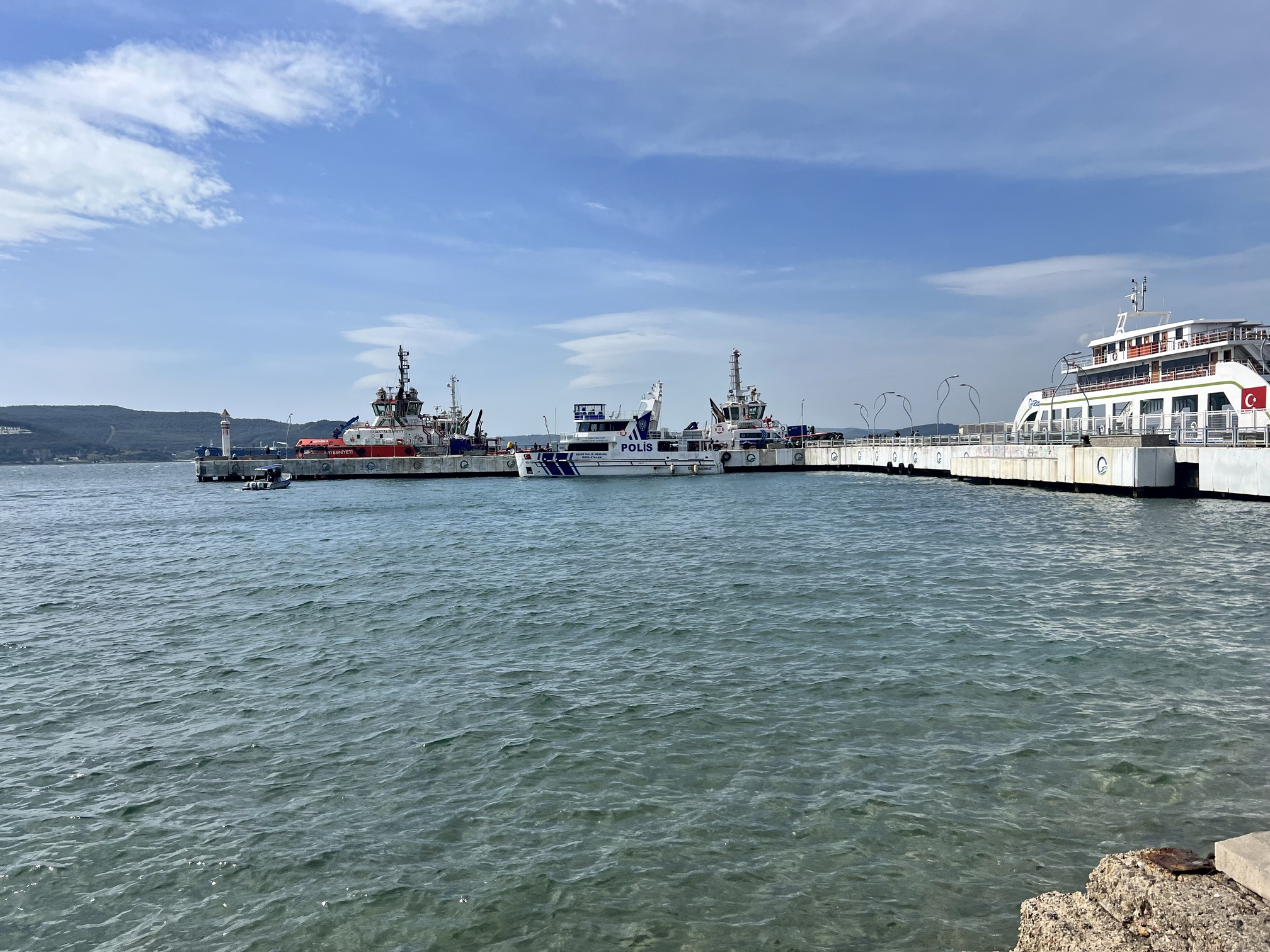
Museum of Troy
Learn about the history of Çanakkale and the ancient city of Troy in this newer museum. In the museum’s several floors, you can explore artifacts and exhibits about Troy and of ancient cities in the region, such as Assos and Alexandria Troas. There’s even pottery, jewelry, sculptures, and coins. The museum also offers educational displays and interactive exhibits that help people understand the historical and cultural significance of the artifacts and the sites at Troy. If you’re not traveling to Troy with a guide, I highly recommend visiting the museum first before the site.
Çanakkale Clock Tower
Built in 1897, the Clock Tower is located in the heart of Çanakkale’s main square, known for its intricate designs and Arabic numerals. Historically, the Clock Tower symbolizes the resilience and resistance of the Turkish people during the Battle of Gallipoli in World War I. It represents the bravery and sacrifice of those who fought in the Gallipoli campaign.
Çimenlik Castle
The castle was built in 1462 by Fatih Sultan Mehmet II, and played a crucial role in defending the Dardanelles Strait due to its location on the narrowest point of the Dardanelle Strait. Inside the castle are two mosques, cannons, and guard towers. Today, the cannons on the castle’s ramparts are still pointed toward the Dardanelles, fulfilling Mehmet’s wish that the strait always be protected.
Kilitbahir Castle
Across from Çimenlik Castle on the other side of the Dardanelles Straight is Kilitbahir Castle, also known as the Lock of the Sea. It was built by Mehmet the Conqueror in 1452 with an interior tower later built in the 16th century by Süleyman the Magnificent. It is accessible by a short ferry ride from Canakkale. Visitors can climb up to the top to get spectacular views of Dardanelles Strait and Canakkale.
Ancient City of Assos
Another significant ancient city dates back to the 4th century BC. It is known for the Assos Ancient Theater, which was one of the first theaters built in Anatolia and could seat 5,000 people. The theater provides a glimpse into the past and provides a fascinating insight into the ancient Greek culture and way of life. The site is open to the public, and guided tours are available.
Military Museum
A large indoor and outdoor venue that has a large collection of historical sailing vessels, cannons, and other military artillery. It also has exhibits on the Canakkale War, Cimenlik Castle, and the Nusret Mine Ship, an Ottoman Naval ship that sank several British Royal Navy and French battleships in the Dardanelles Campaign of 1915. Admission is free for students is free and 13 TRy for adults.
Exploring Çanakkale is a journey through time, where ancient legends, historical battles, and cultural richness converge. From the iconic Ancient City of Troy to the solemn grounds of Gallipoli, Çanakkale invites visitors to witness the layers of its storied past. The vibrant waterfront of Kordon, the symbolic Çanakkale Clock Tower, and the commanding Çimenlik Castle all contribute to the city's unique charm. Whether strolling through the Museum of Troy or taking in the panoramic views from Kilitbahir Castle, each step in Çanakkale unravels a tapestry of historical significance. With diverse transportation options, accommodation choices, and a wealth of attractions, this travel guide to Çanakkale serves as your gateway to a captivating Turkish experience.
Travel Tip
Consider taking a day trip to Gallipoli to learn about Türkiye’s role in World War I and pay tribute to the fallen soldiers.
My Playlist for Çanakkale, Türkiye
"Haydi Gel İçelim" by Sezen Aksu
"Uzaklarda Ara" by Teoman
"İncitme Beni" by Feridun Düzağaç
"Benden Sorulur" by Mabel Matiz
"Kafile" by Mor ve Ötesi
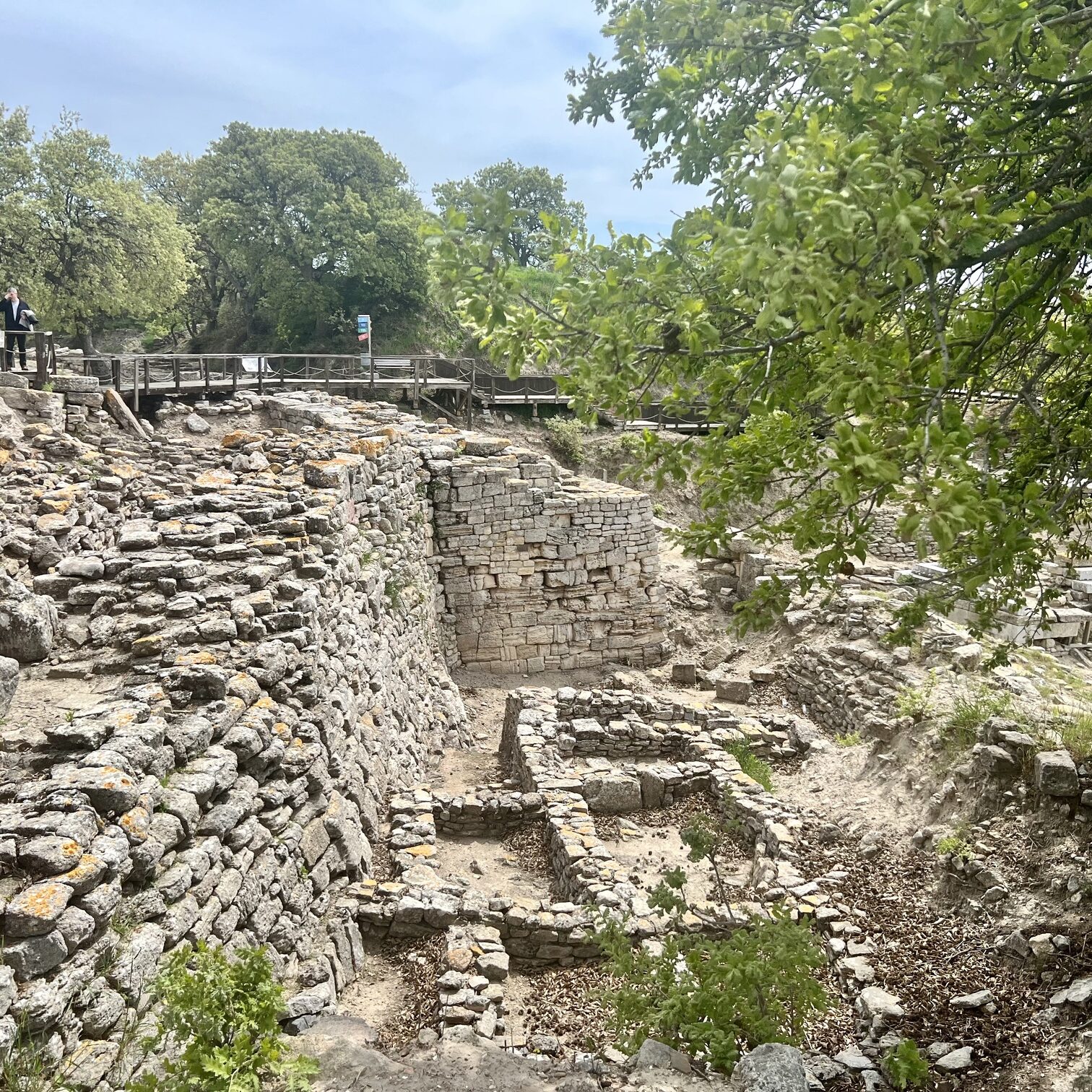
Recommended Reads
Explore Yosemite National Park: A Nature Lover’s Paradise
Key Highlights Next, let’s dive into what makes Yosemite National Park an unmatched treasure of the United…
Local Favorites: What Food to Eat in California
Key Highlights Introduction California, also called the golden state, is a great place for people who love…
Discover the 20 Best Places to Visit in California Now
Key Highlights Introduction California is a place that has something for everyone. You can find natural beauty…


